From Mufti, Monte Carlo, to Madame: Here are the stories of 10 successful Made-in-India fashion brands
Changing market realities have led to Indian fashion brands adapting their manufacturing and selling strategies to become part of the disruption. Here are the stories of 10 such homegrown fashion brands.
India is the world's second-largest exporter of textiles and apparels. The Indian textiles and fashion industry is a significant contributor to the economy, which employs about 45 million people directly.
The fashion industry and its sales channels are becoming more organised due to several disruptions. Some of them include the use of better technology in manufacturing, foreign brands entering India, the ecommerce model becoming popular, and more recently, the COVID-19 pandemic.
The changing market realities have led to Indian fashion brands adapting their manufacturing and selling strategies to become part of the disruption.
Here are 10 successful Made-in-India fashion brands and business that have stood the test of time and made a name for themselves in the market.

Anita Dongre, Chief Creative Officer, House of Anita Dongre
Looking at her mother stitching clothes, Anita Dongre developed a deep interest in fabrics and fashion. Growing up in Mumbai, she started noticing women who had corporate careers or were entrepreneurs. And while this inspired her, it also made her realise that there was no Indian brand that made affordable workwear for them.
She decided to take her interest in fashion and turn it into a clothing brand for the modern working woman.
“I started my business in 1995 with just two sewing machines and a loan from my father. My sister and I would work out of a small, 300 square-foot area and make western outfits for women,” she says.
This was the beginning of Mumbai-based ‘AND’ Designs, which, in 2015, became the House of Anita Dongre. Today, the venture has a multi-dimensional portfolio with brands, including AND, Global Desi, Anita Dongre Bridal Couture, Anita Dongre Grassroot, and Anita Dongre Pink City. Its retail turnover was Rs 800 crore in 2019-20.
Monte Carlo
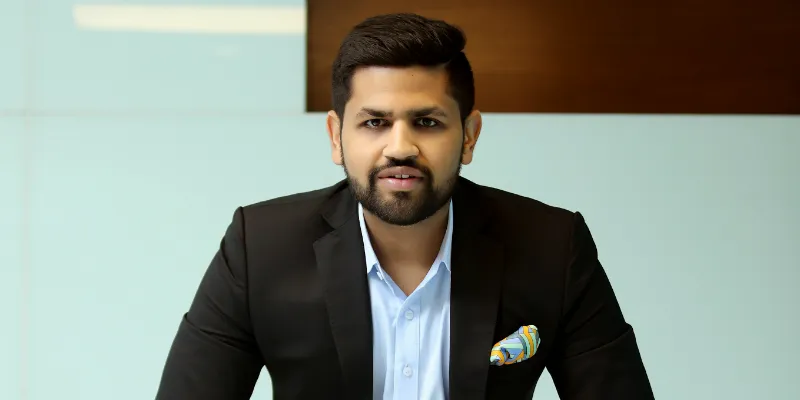
Rishabh Oswal, Executive Director, Monte Carlo
Monte Carlo was started in Ludhiana with Oswal Woolen Mills, which was set up post-Independence in 1949. The mill started bringing the wool industry stakeholders together to form a more organised approach to manufacturing and selling.
In 1984, Monte Carlo was launched as a brand under Oswal Woolen Mills. It held the prestigious title of being one of the first organised fashion apparel brands in India.
In 2018, Monte Carlo recorded a turnover of Rs 580 crore, and registered a revenue growth of around 11 percent. Monte Carlo has also been a clothing partner for the blockbuster Bollywood films Barfi, Mary Kom, Bhaag Milka Bhaag, and Student of the Year.
Madame

Akhil Jain, Executive Director, Madame
In the 1980s, entrepreneur CL Duggar Jain realised that the Indian market for western-style women’s clothing was ruled by Chinese and Thai imports. He noticed no Indian companies were making such apparel for women. This is when the idea of capitalising on this gap occurred to him.
He saw an opportunity and realised that his family business firm Jain Amar — a clothing company — can be a launchpad for such products in India. Duggar took the plunge and launched — a brand to manufacture western-style women’s clothing in 1993 — under the parent company Jain Amar.
He roped in his grandsons Sunil and Bipan to run the new venture. In 2019, Madame recorded a turnover of Rs 320 crore.
Spykar
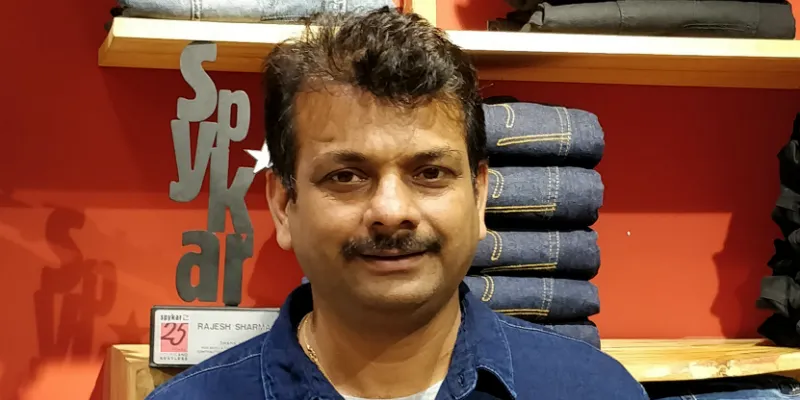
Sanjay Vakharia, CEO, Spykar Lifestyle
Among Indian denim brands, Spykar Lifestyle stands out as one of the largest and fastest-growing brands. Launched in 1992 by Prasad Pabrekar, Spykar Lifestyle — over the years — has been through thick and thin in the Indian market.
Mumbai-based Spykar started small. But over the years, it was shaped into becoming one of the larger players, thanks to Sanjay Vakharia, CEO, Spykar Lifestyle. It has now become a leading casual wear brand with a focus on hi-fashion denim. The homegrown brand now competes directly with its foreign counterparts.
Spykar products are available pan-India across over 250 exclusive outlets, in over 1,000 multi-brand outlets, large format stores, and ecommerce sites. The brand offers casual top-wear, bottom-wear, and accessories like backpacks, flip-flops, perfumes, wallets, deodorants, etc.
Donear

Rajendra Agarwal, Managing Director, Donear
Late Vishwanath Agarwal was a textile trader for 18 years — who built a strong network in the industry — and was also on the boards of some Indian textile businesses. In the 70s, he saw that the Indian textile industry was poised to become more enterprising and attain a global outlook.
This resolve led to the foundation of Donear Industries in Mumbai in 1977. Today, Donear is a well-recognised clothing and textile business brand in India. Last year, it claimed to have a turnover of Rs 1,300 crore and a team strength of 5,000 employees.
The company is now led by Vishwanath’s son and second-generation entrepreneur Rajendra Agarwal. Donear follows both B2B and B2C business models, where it supplies fabrics to other clothing brands, and manufactures and sells finished products under its own brands.
Rage Knitwear
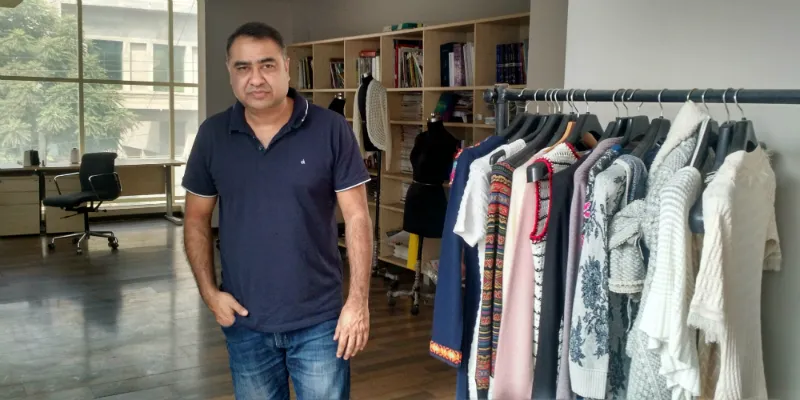
Akshay Bansal, Founder, Rage Knitwear
Tucked in one of the bylanes of Ludhiana industrial Focal Point area just outside the city, stands a nondescript one-storey building that houses the office and factory of Rage Knitwear.
Started on a small piece of land and a loan of Rs 10 lakh, Rage was started by Akshay Bansal in 1995. After struggling initially, Akshay led Rage to soaring heights as it opened 25 exclusive brand outlets (EBOs) and over 500 multi-brand outlets (MBOs) and departmental stores throughout India.
Today, its merchandise includes cardigans, knitted tops, woven blouses, dresses, tunics, jumpers, capes, ponchos, etc., for women. Rage has had Bollywood celebrities like Priyanka Chopra, Katrina Kaif, Diya Mirza, Sameera Reddy, Riya Sen, Mallika Sherawat, and Jacqueline Fernandez as its brand ambassadors.
Mufti

Kamal Khushlani, Founder and Managing Director, MUFTI
Kamal Khushlani always had a keen interest in the fashion retail business. However, hailing from a middle-class background — and losing his father at the age of 19 — he didn’t have the money to capitalise on his vision.
To finally start building on his dream, he borrowed Rs 10,000 from a maternal aunt. and plunged into his entrepreneurial journey. A self-taught fashion designer, Kamal had a firm belief in creating a wave of culture and fashion originating in India to be embraced worldwide.
With this vision, he launched Mufti in 1998. In the 2000s, Mufti gained prominence, expanding from exclusive brand outlets to large and multi-brand outlets and large-format stores.
Mufti today manufactures a range of over 500 products every season, including jeans, trousers, shorts, athleisure, jackets, t-shirts, and more. The brand clocked a turnover of Rs 395 crore in 2018.
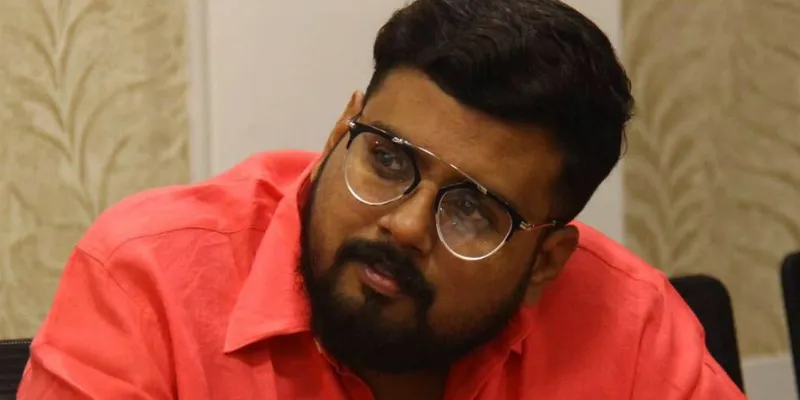
Faizal Ahamed, Founder, Suxus
When Faizal Ahamed CM founded Suxus — a manufacturing and retail brand of men’s apparels in 2006 — the idea was to give the term 'success' a spin and make it catchy.
He started the business with a borrowed capital of Rs 5 lakh. But Faizal was on the brink of bankruptcy in 2011 when he lost upwards of Rs 1 crore. After fighting the odds and bouncing back, he had six showrooms in Tamil Nadu in 2019. He plans to have 420 more stores by 2030.
Today, there are Suxus stores across Tamil Nadu — in Madurai, Coimbatore, Erode, Namakkal, Salem, and Kanchipuram. The company does both B2B and B2C businesses and sticks to a price point between Rs 50 and Rs 500. It deals in only men’s wear, which includes shirts, trousers, T-shirts, and denim.
Numero Uno

Narinder Singh Dhingra, Chairman and Managing Director, Numero Uno
Narinder Singh Dhingra had always been passionate about denim. In the years leading up to 1987, he used to work in his father’s export business. This is when he realised he must do something for the domestic market.
In the 1980s, when Arvind Mills started manufacturing and selling the denim fabric in India, he spotted an opportunity and decided to go after it. He felt that denim, a staple in the West — especially among the working class — must be introduced in India. This is how Numero Uno came into existence.
Today, Numero Uno (which means ‘number one’ in Italian) manufactures denim jeans, shirts, jackets, and other denim items. The brand has now become one of India's well-known denim labels. It clocked a market turnover of Rs 400 crore in 2018-19.
Killer Jeans
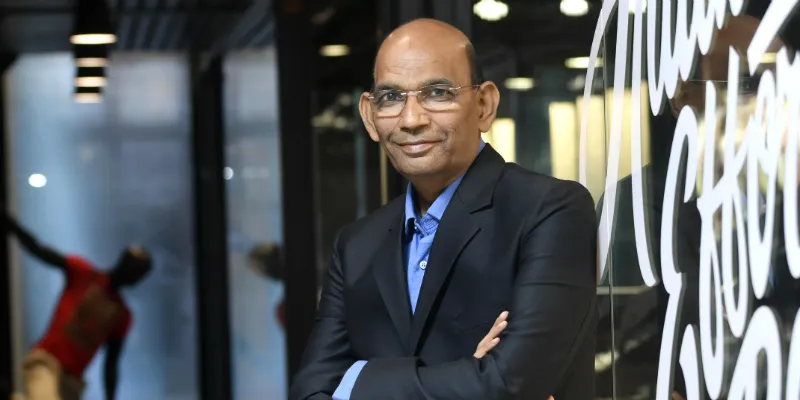
Kewalchand Jain, Chairman and MD, KKCL
Back in 1989, Mumbai-based businessman Kewalchand Jain decided to take a gamble on denim. At the time, he was running his family’s garment business and wanted to start making jeans. Kewalchand told himself he wanted to build an Indian denim brand and make Indians proud of wearing these jeans.
This was the inspiration behind Killer Jeans. Kewalchand launched the brand despite anticipating heavy competition from international brands, including Levis, Pepe Jeans, and Wrangler.
In 1992, he started Kewal Kiran Clothing Ltd (KKCL), which is present across over 209 cities and towns in 25 Indian states. It operates through 336 stores, either owned or through franchise business.
Edited by Suman Singh







